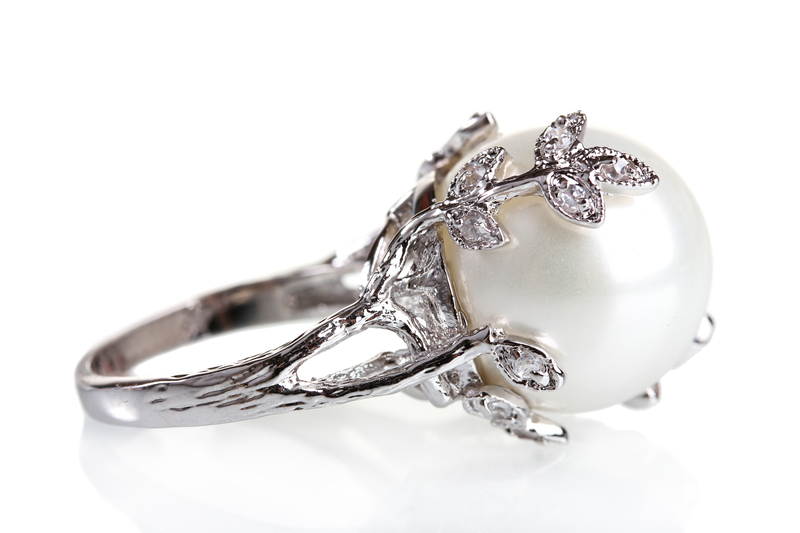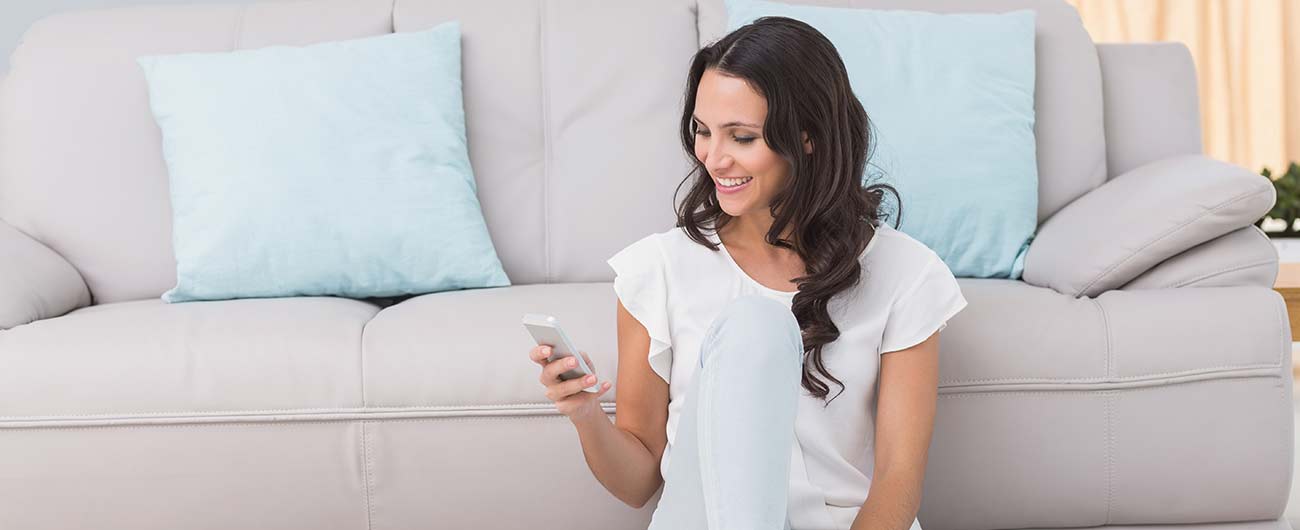Achieve a Fresh Home Atmosphere Free of Pet Odors
Posted on 29/06/2025
Achieve a Fresh Home Atmosphere Free of Pet Odors
Pets bring joy, comfort, and companionship to our lives, but let's face it--sometimes they also bring persistent odors! Whether you have a curious cat, a playful dog, or any other cherished pet, maintaining a clean, inviting, and fresh-smelling home can be a challenge. However, by combining effective cleaning techniques, the right products, and smart daily habits, it's entirely possible to achieve a home environment that radiates freshness and is free of pet odors.
Understanding the Source of Pet Odors
Before you can effectively banish pet odors, it's crucial to understand their sources. Pet smells don't just come from accidents. They can emanate from fur, skin oils, saliva, litter boxes, bedding, toys, and even food and water bowls.
- Bodily Odors: Even healthy pets emit natural smells through their fur, skin, and breath.
- Accidents: Urine, feces, and vomit are the most obvious contributors to unpleasant pet scents.
- Litter Boxes or Cages: Regular maintenance is a must as these can quickly turn into the central source of offensive odors.
- Bedding and Toys: Soft surfaces absorb oils, saliva, and scents over time.
- Outdoor Elements: Pets that go outside might track in mud, dirt, or substances that contribute to indoor smells.
Identifying all the sources is the essential first step toward achieving a clean, odor-free home environment for pet owners.

Daily Practices for a Pet Odor-Free Home
A proactive approach always works better than masking odors after they've set in. Here are the best daily habits to help eliminate pet smells at the source:
1. Regular Grooming for Your Pets
- Brush your pets daily to remove loose fur and dander.
- Bathe them regularly (according to their breed and vet recommendations), using a gentle pet shampoo.
- Wipe muddy paws or fur after outdoor adventures using pet-safe wipes or towels.
This routine grooming minimizes the amount of hair and dander that accumulates in your home and reduces the root causes of odor.
2. Stay On Top of Litter Boxes and Cages
- Scoop litter boxes daily and replace litter at least once a week or according to the brand's guidelines.
- Deep-clean cages, bedding, and any enclosures regularly.
- Consider replacing plastic litter boxes every year, as plastic can absorb odors over time.
Quality litter and cage liners can also make a big difference in trapping and neutralizing odors before they escape into your living space.
3. Wash Pet Bedding and Toys Frequently
- Machine-wash pet beds, blankets, and plush toys weekly in hot water with pet-safe detergent.
- Spot-clean hard toys and accessories, and soak them in a mixture of water and vinegar to disinfect and remove unwanted smells.
Clean bedding and toys not only reduce odors but also promote your pet's health and comfort.
4. Routine Home Cleaning with a Focus on Pet Areas
- Vacuum floors, furniture, and drapes several times a week to capture fur, dander, and debris.
- Mop hard floors with an enzyme-based cleaner to break down organic stains and odors.
- Dust surfaces and wash throws, cushion covers, and other washable textiles regularly.
Any area that your pet frequents will benefit from special attention. Enzyme cleaners are especially effective in neutralizing pet odors instead of just covering them up.
Smart Cleaning Solutions That Eliminate Pet Smells
1. Use Air Purifiers and Deodorizers
Air purifiers with HEPA and activated carbon filters can trap pet hair, dander, and molecules that cause bad odors. For a natural touch, add baking soda or charcoal sachets to control lingering odors in rooms, closets, and near litter boxes.
- Look for air purifiers specifically designed to combat pet allergies and odors.
- Combine the purifier with essential oil diffusers (pet-safe only!) for a burst of pleasant, natural fragrance.
Fresh air circulation is key; open windows for at least 10 minutes a day to let stale air out and new air in.
2. DIY Solutions: Baking Soda, Vinegar, and Lemon
Baking soda is famous for its ability to absorb and neutralize smells:
- Sprinkle baking soda on carpets and furniture, allow it to sit for 15-30 minutes, then vacuum thoroughly.
- Mix equal parts water and white vinegar in a spray bottle for quick cleanups of accidents or to wipe down hard surfaces.
- Place lemon slices in bowls strategically around your home for a natural, uplifting scent.
Be sure to test all solutions on a small, hidden area first to ensure they won't damage or discolor surfaces!
3. Invest in Enzyme-Based Cleaners
Enzyme cleaners don't just mask smells. They break down the biological particles that cause the odors, providing long-lasting results. These are particularly effective for:
- Cleansing carpets and rugs after pet accidents
- Washing pet bedding
- Deodorizing upholstery and soft furnishings
Strong enzyme formulas are a must-have in the toolkit of any pet parent aiming to achieve a fresh home atmosphere free of pet odors!
How to Manage Pet Odors in Each Room
Every room poses unique challenges when it comes to keeping your living spaces smelling fresh. Here's how to tackle them room by room:
Living Room
- Choose washable slipcovers for sofas and chairs.
- Vacuum upholstered furniture and carpets regularly with a HEPA vacuum.
- Keep throw blankets and cushions fresh by washing them weekly.
- Add houseplants like snake plants or peace lilies (pet-safe varieties only) to naturally purify the air.
Bedrooms
- Launder bedding and pillowcases often, especially if pets sleep with you.
- Use protective mattress and pillow covers that are easily machine washable.
- Clean underneath the bed and in corners, where fur and dander can accumulate unseen.
Kitchens
- Wash pet bowls daily and sanitize weekly.
- Store pet food in airtight containers to contain strong smells.
- Clean feeding areas and wipe up spills promptly.
Bathrooms & Utility Spaces
- Designate a regular spot for litter boxes or pet bathing to control and contain potential odors.
- Clean and disinfect these areas more frequently than others.
Hallways & Entryways
- Position washable mats by doors for pets to walk over when coming in from outside.
- Keep a towel or pet wipes handy for quick paw cleanings at the entrance.
Preventing Pet Odors: Proactive and Long-Term Strategies
1. Maintain Regular Vet Checkups
Persistent or particularly foul pet odors may indicate health problems. Routine vet visits help catch issues like dental disease, ear infections, or skin conditions early--before they lead to bigger odor and health concerns.
2. Ensure Proper Ventilation
Good airflow helps remove bad smells and brings in fresh air. Use ceiling and exhaust fans, open windows, and consider installing air exchangers if your home is well-sealed.
3. Choose Odor-Resistant Materials When Possible
- Select hard-surface flooring (tile, vinyl, or hardwood) over carpet, especially in high-traffic pet areas.
- Opt for washable curtains, slipcovers, and bedding.
- Invest in pet beds, mats, and rugs designed to repel odors and moisture.
4. Train Your Pets Effectively
Pet training not only improves your pet's behavior but also reduces the likelihood of accidents indoors. Reward pets for using their designated potty zones, and address marking or frequent accidents with the help of a trainer or veterinarian if needed.
Safe Use of Commercial Deodorizers and Fresheners
Not all air fresheners or cleaning products are safe for pets. When shopping for commercial odor eliminators:
- Choose products specifically labeled as pet-safe and nontoxic.
- Avoid sprays and plug-ins with volatile chemicals, ammonia, homemade essential oils, or phenol, which can be harmful to animals.
- Read ingredient lists carefully, and keep all cleaning products out of animals' reach.
Always err on the side of caution--your pet's health is far more important than any artificial scent!
Natural Scents and DIY Air Fresheners
For households aiming for both safety and sustainability, consider homemade or natural solutions to keep the atmosphere smelling clean:
- Simmer a pot of water with lemons, rosemary, and a touch of vanilla on the stove for a subtle, inviting aroma.
- Place bowls of baking soda or activated charcoal in inconspicuous spots scattered throughout your home.
- Make a simple air freshener spray with distilled water, a few drops of pet-safe essential oils (like lavender or chamomile), and vodka as a preservative.
Research thoroughly before using any essential oils--many can be toxic to cats and dogs!

Frequently Asked Questions About Achieving a Fresh, Odor-Free Home with Pets
- How often should I deep-clean my home if I have pets?
Major cleaning (steam cleaning carpets, washing all bedding, cleaning behind furniture) should be done monthly, with spot cleaning and daily habits maintained every day. - Does air freshener harm my pet?
Some commercial air fresheners release VOCs and chemicals that can be harmful to pets. Always choose products marketed as pet-safe or opt for natural alternatives. - Why does my home still smell even after cleaning?
Odors trapped in carpets, underflooring, or deep within furnishings can persist if not properly neutralized. Consider professional cleaning or replacing old, odor-absorbing surfaces if smells linger.
Conclusion: Enjoying a Fresh Home Atmosphere Free of Pet Odors
With dedication, smart habits, and the right cleaning methods, pet owners can absolutely achieve a fresh home atmosphere free of pet odors. The key is to address odors at their source with routine grooming, cleaning, prevention, and safe deodorizing techniques. Not only will your home smell better, but it will also be more welcoming for family, friends, and--most importantly--your furry companions. Start implementing these tips today and breathe easy in a home that's both pet-friendly and perpetually fresh!



